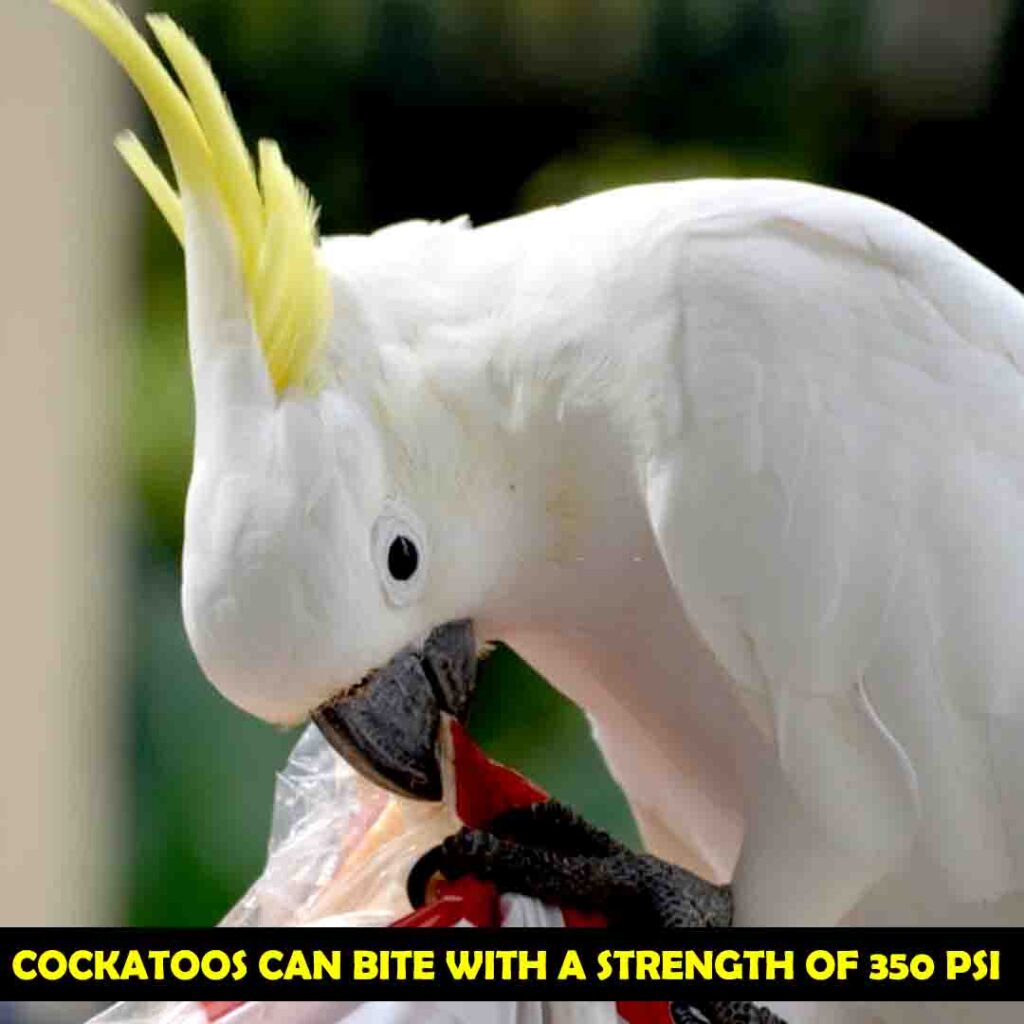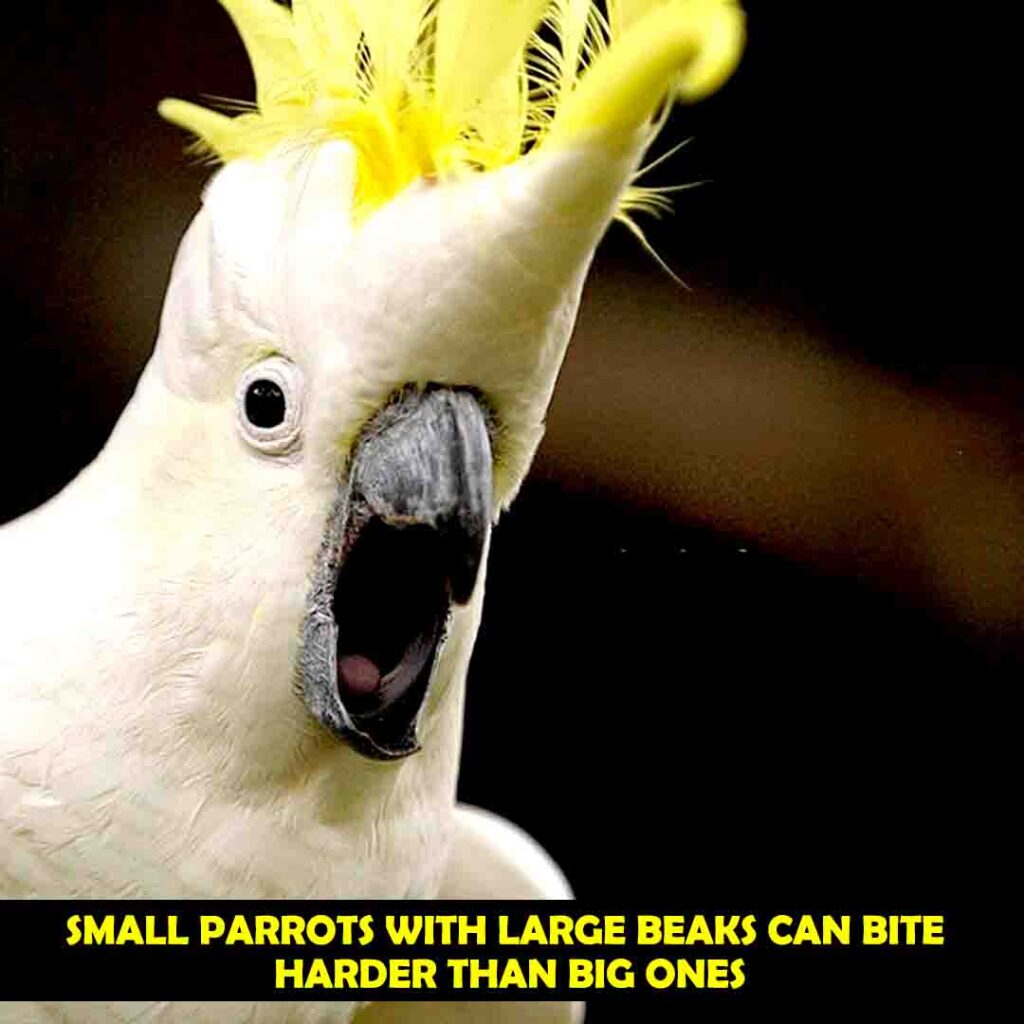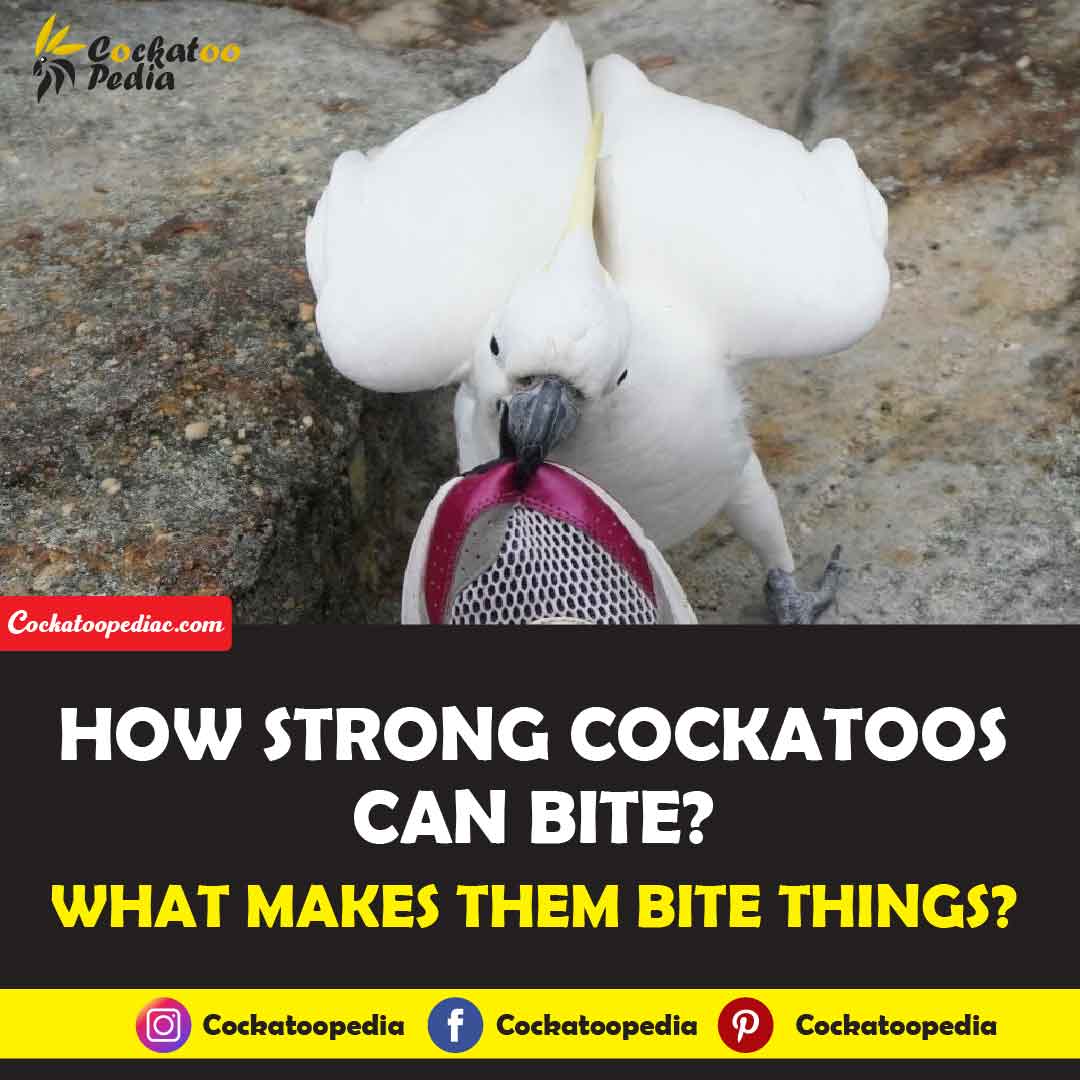If you are familiar with cockatoos, you might already know cockatoos can develop the habit of biting, and their bites are painful. But exactly how strong is a cockatoo bite? Can it bite your finger off?
No, cockatoos cannot bite your finger off. The bite strength of cockatoos is 350 PSI. It is good enough to crack the nuts and toys and tear human flesh but not for completely biting off a finger.
No matter if cockatoos cannot bite your finger off, their bites are still painful. They can cause severe damage. However, cockatoos can be trained to stop biting. But before training a cockatoo, you must understand why he bites.

Why do cockatoos bite?
Generally, cockatoos bite when they are aggressive or scared; they do it for self-protection. Usually, they warn you before they bite by hissing and puffing their feathers.
Sometimes, cockatoos bite things around them in curiosity and accidentally bite your finger. They like to taste almost everything around them. For example, one of my cockatoos once took off every button of my laptop’s keyboard just for fun.
Similarly, when a cockatoo is trying to climb on your hand or is accidentally about to fall, it softly holds on to your hand by holding your finger in its beak. If the cockatoo feels more strength is needed to pull himself up, he may bite with a bit more strength, causing you pain. This usually happens when cockatoos are young and when they grow up, it rarely happens.
Sickness and stress also sometimes cause cockatoos to bite. When cockatoos are not feeling good and are still touched or forced to play, they show aggression by biting. In such situations, all they want is to be left alone. If your cockatoo shows any such signs, consult an avian.
Another possibility is hormonal drive during the breeding season. When cockatoos are near to breed, they get a bit aggressive and can bite their owner. When they have laid eggs, or their chicks have hatched out, they get even more aggressive.
I recommend learning about cockatoo body language. It enables cockatoo keepers to understand what their cockatoo is trying to communicate, when they are comfortable and when they are aggressive.
3 types of cockatoo bites
The impact of a cockatoo bite depends on the way it bites. Let’s discuss the different types of cockatoo bites and their impact.
Puncturing sharp bites
Puncturing bites are usually done in an instant. The cockatoo punctures the skin by inserting the sharp edge of the beak inside the skin. As already discussed, small cockatoos are likelier to do this as they have smaller and narrower beaks.
Twisted bites
Some cockatoos bite very hard and twist the skin while biting. This twisting tears the skin and causes extreme pain. Only a large cockatoo can do this.
Long bites
Usually, no cockatoo bites for long without reason, but when it is too aggressive, it bites for a long. This type of bite can cause severe damage to the finger as the pressure is applied on a larger area of the finger than just a small spot.
Does the strength of a cockatoo bite vary with the size of the beak?
Yes, to some extent, the strength of the bite varies with the size of the cockatoo beak. Generally, large cockatoos have large beaks, and the strength of their bites is higher. So they can apply more pressure. But this does not mean small cockatoos cause less damage.

Although small cockatoos have smaller beaks and cannot apply higher pressure, their beaks are narrower and have more shaper edges. They are more likely to tear off the skin from your finger, and since their beaks are narrower and sharper, they can easily penetrate your skin.
Final Thoughts
Although cockatoos cannot bite your finger off, their bites can cause severe pain. Cockatoos rarely bite without reason; could you not give them a reason? Even if he bites, never punish him. Otherwise, he will get more aggressive.
Establish a loving and trustful relationship with your cockatoo so that it may never think of hurting you, and also train him to stop biting.

